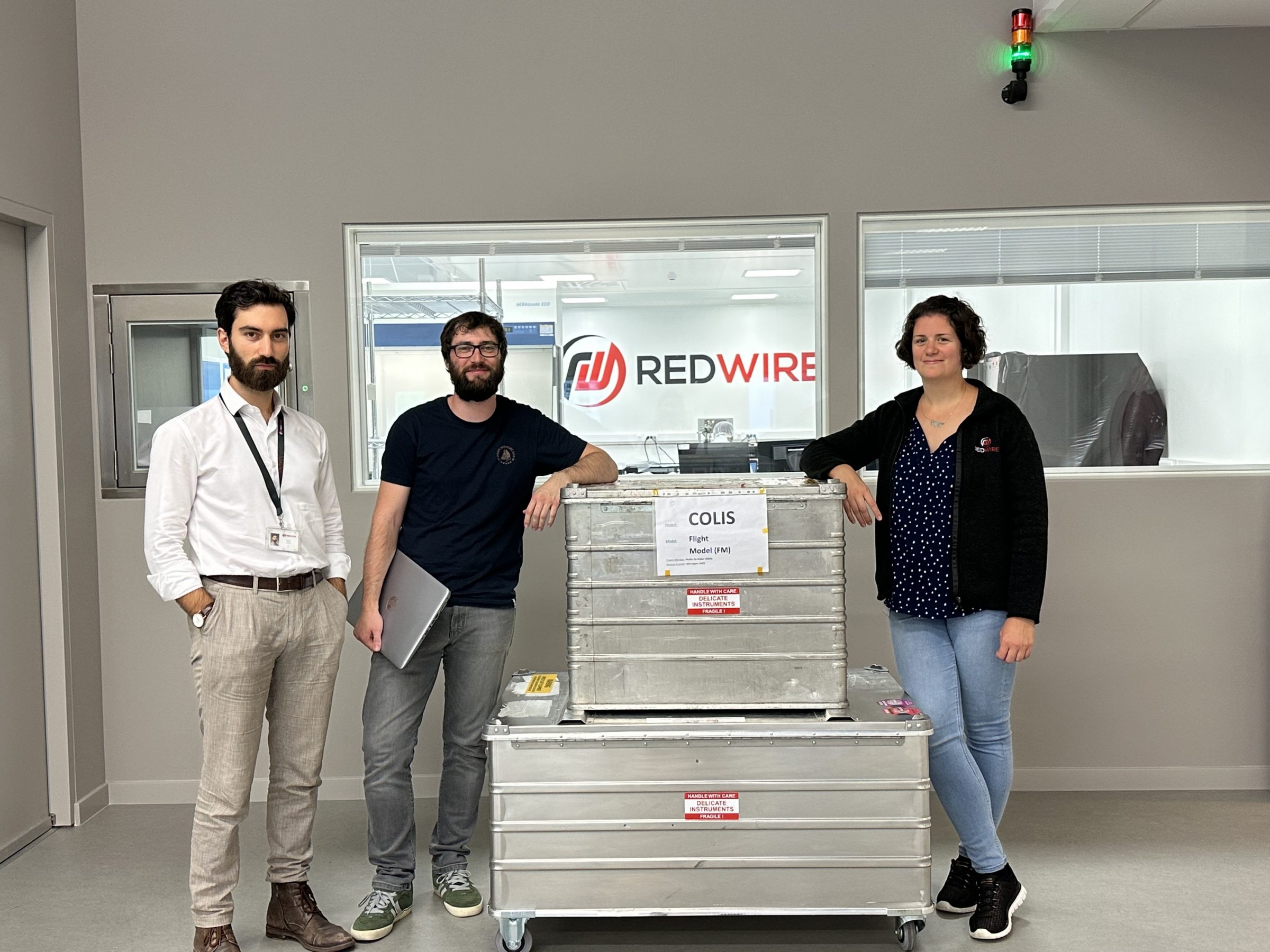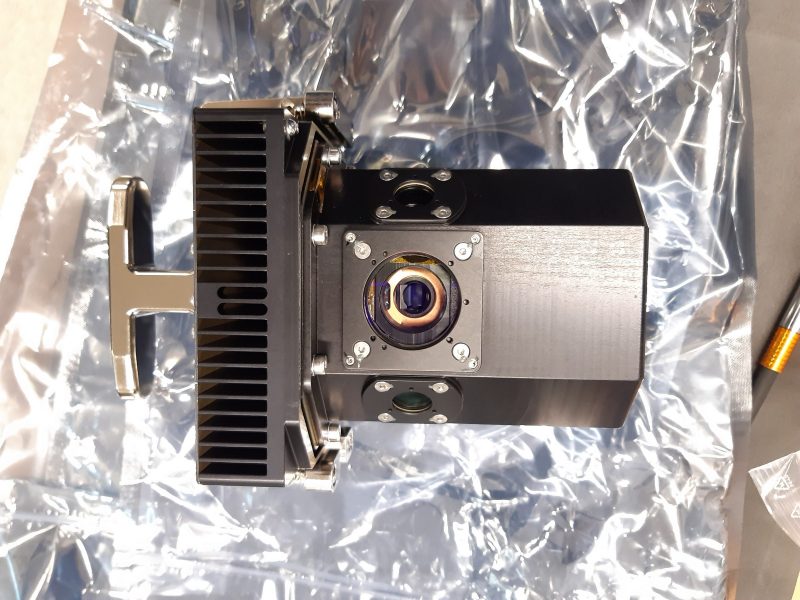
The Colloidal Solids instrument, (COLIS), designed and manufactured by Redwire’s team in Belgium for the European Space Agency, is ready for launch to the International Space Station (ISS) as part of the NG-21 cargo resupply mission. COLIS is a scientific instrument designed to investigate the origin, formation, and dynamics of proteins, colloidal glasses, and gels. The instrument will be housed in the Microgravity Science Glovebox facility onboard the ISS.
COLIS enables in-situ monitoring of physical processes during solidification in microgravity. Better understanding of the dynamics of these processes is needed to assess how gravity affects the properties of growing structures. The instrument’s core elements are cell modules that contain experiment liquids. COLIS uses two types of cell modules, known as cell D and cell E, each with their own specific optical requirements and challenges. An exchange mechanism ensures that the cell modules can be inserted and removed from the experiment unit while maintaining safety with two levels of containment.
Understanding Colloidal Systems and Crystal Nucleation to Improve Life on Earth
The cell D investigation will shed light on protein crystal nucleation. Crystal nucleation is a crucial event at the start of the crystallization. Understanding the fundamentals of this event is vital. However, crystal nucleation remains of the most secretive processes in chemistry, physics, materials science, biophysics, and biotechnology, with theoretical predictions and experimental results can differ by more than 10 orders of magnitude. In addition to controlling the crystallization process, nucleation is also an important step in the recognition and self-assembly processes that are part of diseases like Alzheimer’s, Parkinson, and Huntington diseases.
The cell E investigation focuses on more fundamental research. In addition to the enormous industrial interest in colloidal suspensions seen in many markets, there is a genuine scientific interest as colloidal systems mimic those of more complex molecular systems. Colloidal systems could serve as simple and easily accessible models to study more complex physics, which has applications in many different areas.
For example, colloids are used as thickening agents in industrial products such as lubricants, lotions, toothpaste, and coatings, and are useful in the manufacture of paints and inks. They also play an important role in the transfer of nutrients and pollutants in the environment over short and long distances. Colloidal stabilization can also be used to predict diffusive behavior in the brain microenvironment and suspension can improve drug chemical stability.

COLIS adds to Redwire’s long heritage of scientific discovery and support of microgravity research. COLIS has the potential to provide new insights into the physics of solidification microgravity. The experiments that will soon be launched to the ISS could yield fundamental scientific advances that could lead to important improvements in life on Earth.
Learn more about the other Redwire technology launching on NG-21 here.




